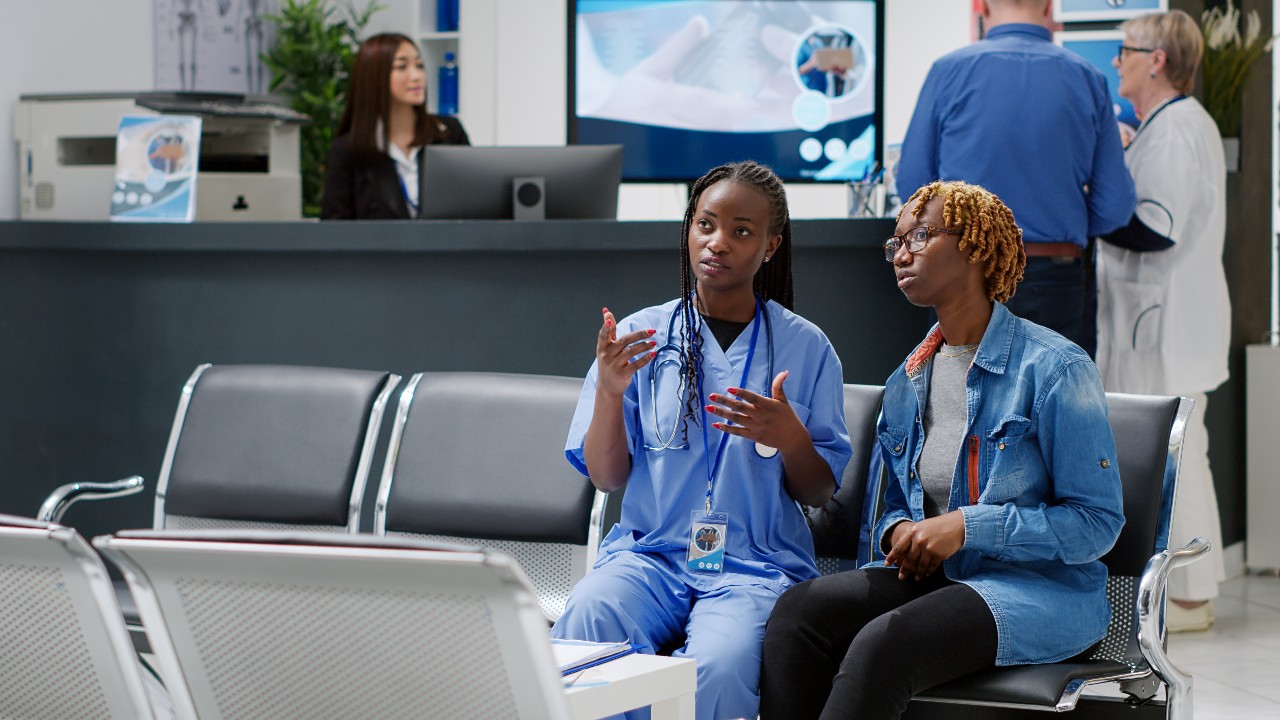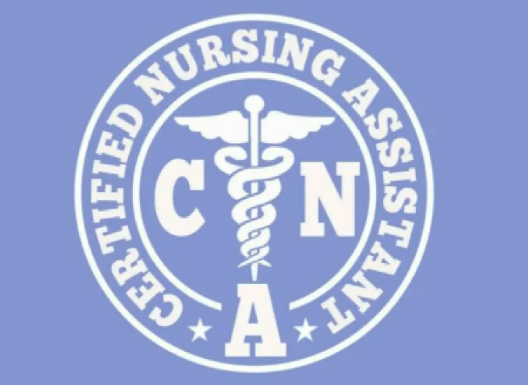Immigify 50% Discount Offer for Nigeria Registrations
This promo code is meant for only Nigerian registrants. Use code at checkout

About this course
Our Certified Nursing Assistant (CNA) training program is designed to equip Black and Brown Americans with the knowledge and skills needed to excel in the healthcare industry. This comprehensive course covers essential nursing skills and prepares you for certification, opening the door to numerous career opportunities in healthcare.
What You’ll Learn:
- Basic Nursing Skills: Learn how to assist patients with daily activities, including bathing, dressing, feeding, and mobility.
- Patient Care Techniques: Gain hands-on experience in monitoring vital signs, managing infection control, and ensuring patient comfort and safety.
- Healthcare Communication: Master the art of effective communication with patients, families, and healthcare teams.
- Medical Terminology and Ethics: Understand common healthcare terms and the ethical considerations in patient care.
- CPR and Emergency Response: Become certified in CPR and learn to respond confidently to emergency situations.
- Clinical Experience: Engage in practical, real-world clinical scenarios to build your confidence in a healthcare setting.
Why Choose AfroHealth?
- Healthcare Facility Placement: After completing the training, we provide healthcare facility placement to kickstart your career.
- Proven Success: With 438 students and over 400 jobs secured, our program is a trusted pathway to success in the healthcare field.
- Culturally Sensitive Training: Our program is designed with a focus on supporting and uplifting Black and Brown communities in healthcare.
FAQ
This objective provides an introduction to the various components of the healthcare system, including hospitals, long-term care facilities, and home care. Students will learn how different healthcare professionals collaborate to provide comprehensive patient care.
The CNA's primary responsibility is to assist patients with daily living activities while maintaining their dignity and comfort. This objective emphasizes the importance of the CNA’s role in ensuring patient safety and well-being under the supervision of licensed healthcare providers.
Students will explore the ethical principles that guide CNA practice, such as patient autonomy, respect, and beneficence. The module highlights the need for maintaining professional boundaries and delivering care with integrity.
CNAs must understand the legal responsibilities of their role, including upholding patient rights and maintaining confidentiality in accordance with HIPAA regulations. This objective stresses the importance of legal compliance in ensuring safe, ethical care.
Effective communication with patients, families, and healthcare teams is a crucial skill for CNAs. This module teaches verbal and non-verbal communication techniques, active listening, and how to manage interactions with empathy and clarity.
Students will learn how to provide specialized care for patients with unique medical needs, including post-operative and catheter care.
This objective covers how to assist patients in using prosthetic and orthotic devices to improve their mobility and function.
CNAs will be trained in ostomy care, including how to clean and manage ostomy sites safely.
This objective emphasizes how to assist patients with physical or cognitive disabilities while promoting their dignity and independence.
CNAs will be trained in assisting patients with range of motion exercises to maintain or improve mobility.
Students will learn how to properly assist patients with mobility aids like walkers, canes, and wheelchairs.
This objective teaches CNAs the correct techniques for helping patients walk safely, promoting independence.
CNAs will learn to support patients during physical therapy exercises, aiding in their recovery and rehabilitation.
This objective focuses on helping patients regain independence in daily activities such as dressing, bathing, and eating.
Students will learn to recognize and address the mental health needs of patients, including anxiety and depression.
CNAs will be trained to provide emotional support to patients dealing with stress, anxiety, and depression.
This objective emphasizes the role of CNAs in offering empathy and emotional support to improve patient well-being.
Students will learn how to deliver culturally competent care that respects patients' diverse backgrounds and beliefs.
This objective covers communication skills to effectively interact with patients and their families, ensuring clarity and compassion.
Students will learn the unique needs and challenges of providing care to elderly patients.
This objective covers common chronic illnesses and how CNAs assist in managing these conditions.
CNAs will be trained to care for patients with dementia and Alzheimer’s, focusing on safety and compassionate care.
This objective teaches CNAs to encourage independence in patients while improving their overall quality of life.
Students will learn the principles of end-of-life care, including supporting patients and families during hospice care.
Students will learn how infections are transmitted and how to prevent their spread in healthcare settings.
This objective covers the proper use of PPE like gloves, gowns, masks, and eye protection to ensure infection control.
CNAs will be trained in proper handwashing techniques, a critical practice in preventing infections.
Students will learn the correct protocols for isolating patients with infectious diseases to protect others.
This objective covers how to safely handle and dispose of biohazardous materials in compliance with safety regulations.
Students will learn strategies to prevent falls and maintain a safe environment for patients.
This objective covers when and how to safely use restraints in compliance with healthcare regulations.
CNAs will be trained in fire safety protocols and the proper procedures for evacuating patients during an emergency.
This objective prepares CNAs to handle medical emergencies by performing CPR and using an AED when necessary.
Students will learn infection control measures to protect themselves and patients, including the use of standard and transmission-based precautions.
CNAs will be taught how to identify and manage environmental hazards in healthcare settings to ensure patient safety.
Students will learn the fundamentals of nutrition and how it affects patient health and recovery.
This objective covers the various types of therapeutic diets and how CNAs assist in their implementation for patient care.
CNAs will be trained in proper feeding techniques to help patients maintain adequate nutrition, especially those with physical or cognitive impairments.
Students will learn to monitor and record fluid intake and output to prevent dehydration or fluid overload.
This objective covers how to help patients with their meals, ensuring they meet their dietary requirements.
CNAs will understand the significance of proper hydration and how to prevent complications related to dehydration.
Students will learn to accurately measure and interpret vital signs to monitor patients' health status.
This objective covers infection control practices like proper hand hygiene and sterilization to prevent the spread of diseases.
CNAs will learn safe body mechanics and lifting techniques to prevent injury while moving patients.
Students will be trained in safely turning, positioning, and transferring patients to ensure comfort and prevent complications.
This objective teaches how to make occupied and unoccupied beds efficiently to maintain cleanliness and patient comfort.
CNAs will learn to assist patients with bathing and grooming to ensure proper hygiene and well-being.
This objective covers how to provide oral care and clean dentures to maintain oral health and prevent infections.
Students will learn techniques to assist patients with dressing and undressing while preserving their safety and dignity.
This objective introduces the basic organization of the human body, including cells, tissues, organs, and systems. Students will learn how these structures work together to maintain homeostasis and overall health.
Students will explore the key functions and interrelationships of the major body systems, such as how the cardiovascular system circulates blood and the respiratory system supports oxygen exchange. Understanding these systems enables CNAs to recognize symptoms and provide targeted care.
As the body ages, it undergoes various physiological changes that can affect organ function and mobility. This objective focuses on understanding these changes to better support elderly patients and adapt care to their specific needs.






